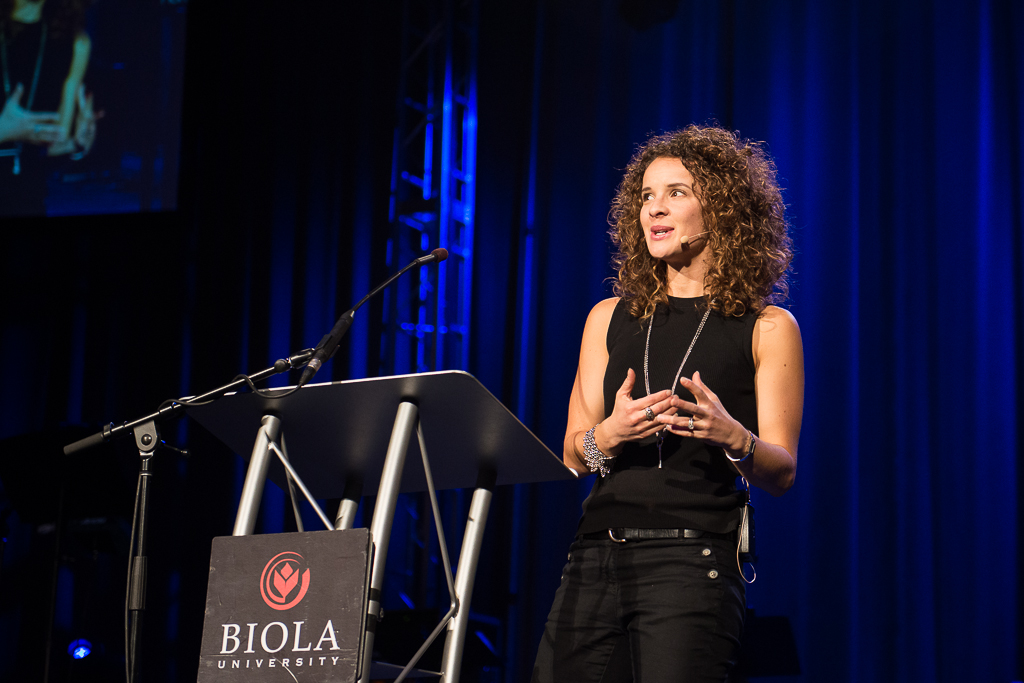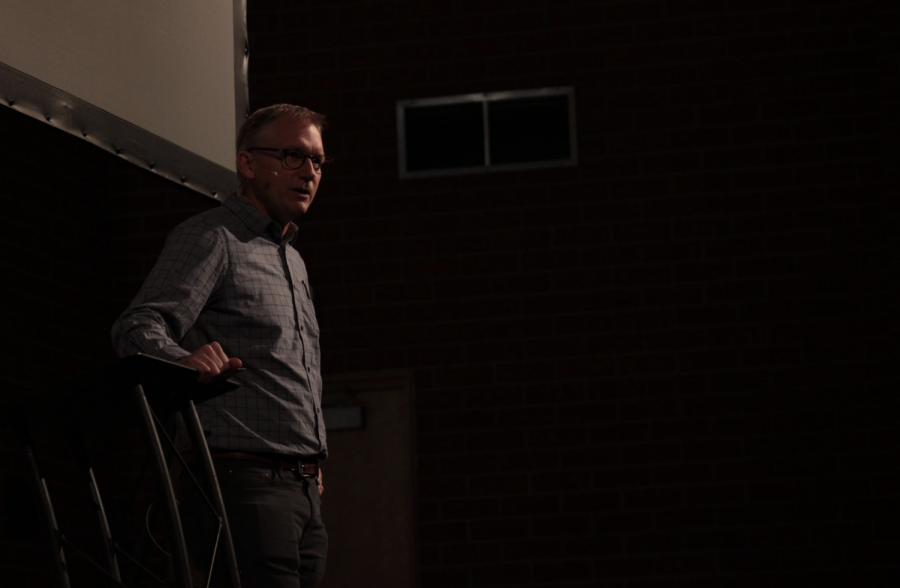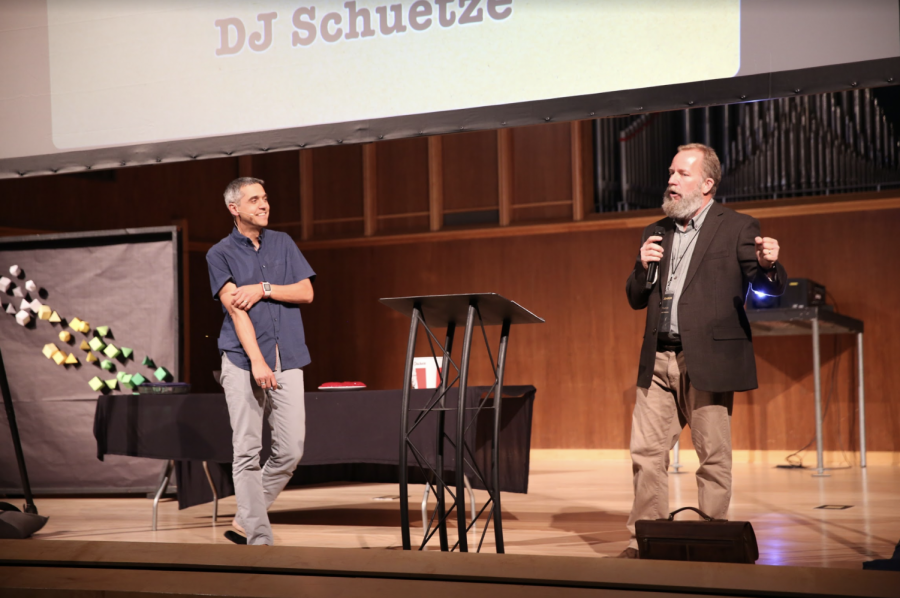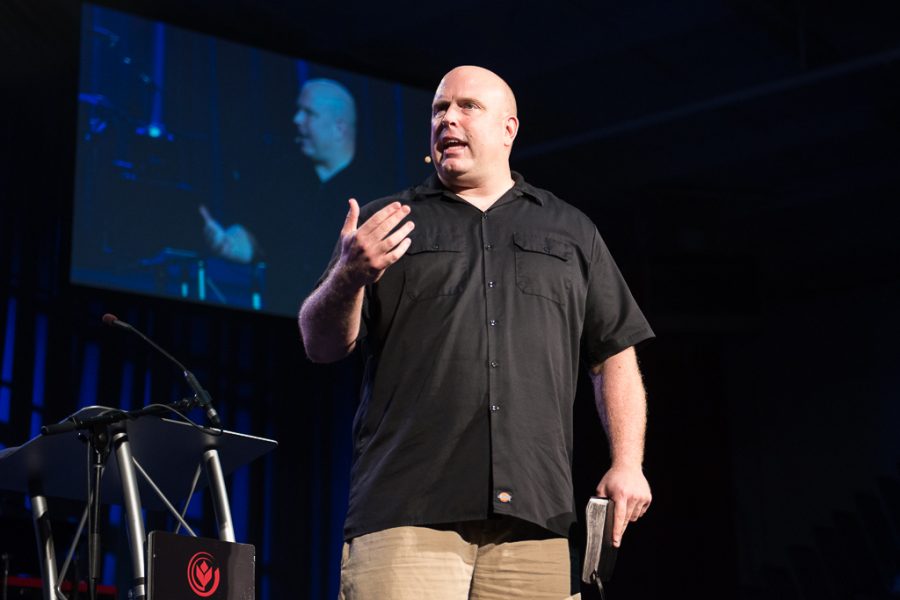Watching Jonalyn Fincher and her gorgeous hair take the stage for the second time today filled me with excitement and anticipation. Throughout “The Man Behind the Curtain: Good News Without Tricks”, I was struck by her energy, passion and candidness as she spoke about evangelizing in a way that does not distort God’s true nature.
When Dorothy brings the Wizard of Oz the Wicked Witch of the West’s broom, she discovers the great man to which she strove to prove her worth is merely a man with a lot of tricks up his sleeve. Disappointed and disillusioned by the being she put great amounts of faith in, she is left to believe her efforts were in vain. Jonalyn Fincher proposed the idea that the secular world view of God is very similar to this moment. They see us as people serving God, motivated by fear of failure, of judgment and of hell. When we speak to them of believing in God, they are hesitant to exchange their present life for one they view as a burden. Jesus definitely said he would weigh us down with his burden, right? No, he said his yoke was light and easy. So why does our evangelism translate to salvation with a scary catch? In asking this question, Fincher also gave plenty of answers so we can avoid erring in this way, as well as others.
“I want to see God save her, not me” Fincher boldly said, reminding us that we do not save people, Jesus does. While we are called to share our faith, Jesus uses us in our imperfect humanity for his greater purpose. If we mess up, we do not fail God. Those words took a weight off my chest that I didn’t realize had settled there when she began talking about sharing God. As someone who has always felt awkward and intimidated when evangelizing, Fincher spoke directly to my heart. God is not watching us, judging how well we save his people, there is no grade book and red pencil in his hand. We need to remember that he is working through and with us in those moments, our job is just to reveal his truth. Let us not evangelize quivering for the person’s potential eternal destination, but instead lead with love for the humanity he bestowed on us and the grace he has supplied. In that moment, I realized that my incorrect notions about evangelizing feeds my anxiety and hinders my effectiveness as a witness for Christ. It is safe to say that I literally sat on the edge of my seat for the majority of the session, hungry for Fincher’s insights. Though we hear staff and faculty speak of misguided views that will be challenged and corrected for better as we grow at Biola, for the first time I experienced the fulfillment of that promise and felt encouraged.
Fincher brought to light several great points which hinder our ability to share God, even when we are lovingly trying to share him with someone. As people who know and love Jesus, we often are unaware how our actions and words can be misinterpreted. We often forget that the people we speak to are equally as human as we are. Each person has a unique experience which has molded them into the unique being you are encountering. This person is composed of thoughts, feelings, wants, needs and perspectives worth listening to and learning from, in a way that will make you a more effective witness for Christ to them.
In laying out three pieces of advice given to her about the way we evangelize by Vyckie Garrison, a self-described atheist and feminist, she exemplified the ways we can learn from listening to others well. With encouragement to discuss instead of dominate in conversation, to be well informed before we speak and to relax, there is no question that we can benefit from Garrison’s words. Her advice about evangelism may be that much more valuable because she is not a follower of Christ – she sees things from another point of view, one to which we most likely are completely unfamiliar. In order to bring people to God, we need to know them past the superficial label of their ideology and beliefs. We need to understand their view of the human experience in order to show them God’s plan for humanity.
As effective witnesses of the one true God, we must also remember that our human state is made in his image. Fincher said that our shame about our humanity is dangerous because God intended for us to be human. While our experience and his plans often differ as a result of sin, once we accept Jesus and bridge that gap, our humanity is should not be a source of shame or feeling of worthlessness. After you have grappled with that, now look out into the world. God made them humans in his image too. As Fincher said, “you know you have created God in your image when God hates all the same people you do”, I remembered the Great Commission. If we know our humanity is not a source of shame, then neither is theirs and we are called to love them just as much, if not more, than ourselves as creations of God. I caught up with Fincher after the session and we spoke about another mistake made in evangelizing out of fear, the “sin sniff”. Fixating on a sin because we fear the consequences instead of learning about the root motivator of that sin does a great disservice to the person we want so much to help. “When we are motivated by fear we can’t see the heart needs of where people are at”, she said, once again refocusing my views. When we miss where Jesus wants to touch their lives, we miss the point of evangelism. Repentance and salvation will follow, but Jesus needs to reach them first. By loving people in their broken humanity without treating them as less than worthy, they will see God as the God of Israel, not the Wizard of Oz.








